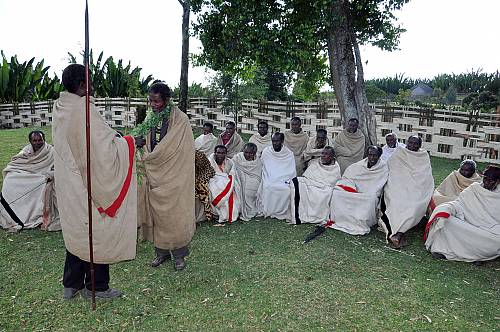21 September: Living Heritage and the International Day of Peace

© The Authority for Research and Conservation of Cultural Heritage (ARCCH), 2013
Every year, the 21st September marks the International Day of Peace, an occasion to discover the wide range of elements related to peacebuilding inscribed on the lists of the 2003 Convention.
The 2021 theme for the International Day of Peace is “Recovering better for an equitable and sustainable world”. As we heal from the COVID-19 pandemic, we are inspired to think about how to recover while building resilience towards a world into one that is more equal, more just, equitable, inclusive, sustainable, and healthier.
The lists of the 2003 Convention for the safeguarding of the Intangible Cultural Heritage include many elements related to peacebuilding. Living heritage has the potential to foster social harmony through shared values expressed in festivals, performance, cultural expressions, and oral traditions. Many communities have practices, which serve specifically to promote dialogue, mutual understanding, arbitration and peaceful conflict resolution.
- Al Aflaj, traditional irrigation network system in the UAE, oral traditions, knowledge and skills of construction, maintenance and equitable water distribution (United Arab Emirates)
- Capoeira circle (Brazil)
- Buklog, thanksgiving ritual system of the Subanen (Philippines)
- Sanké mon, collective fishing rite of the Sanké (Mali)
- Irrigators’ tribunals of the Spanish Mediterranean coast: the Council of Wise Men of the plain of Murcia and the Water Tribunal of the plain of Valencia (Spain)
- Yeondeunghoe, lantern lighting festival in the Republic of Korea (Republic of Korea)
- Practices and knowledge linked to the Imzad of the Tuareg communities of Algeria, Mali and Niger (Algeria, Mali and Niger)
- Safeguarding strategy of traditional crafts for peace building (Colombia)
- Manden Charter, proclaimed in Kurukan Fuga (Mali)
In 2008, the 13th session of the Intergovernmental Committee for the Safeguarding of the Intangible Cultural Heritage inscribed traditional Korean wrestling, ssirum/ssireum, on the Representative List of the Intangible Cultural Heritage of Humanity, on the basis of a joint application by the Democratic People’s Republic of Korea and the Republic of Korea. As Audrey Azoulay, Director-General of UNESCO, declared then : “The fact that both Koreas accepted to join their respective applications is unprecedented. The joint inscription marks a highly symbolic step on the road to inter-Korean reconciliation. It reminds us of the peace-building power of cultural heritage, as a bridge between peoples. This marks a victory for the longstanding and profound ties between both sides of the inter-Korean border.”
These elements constitute one of the many illustrations of the entanglement of living heritage and sustainable development, as one can explore on the dedicated Dive visualization.









